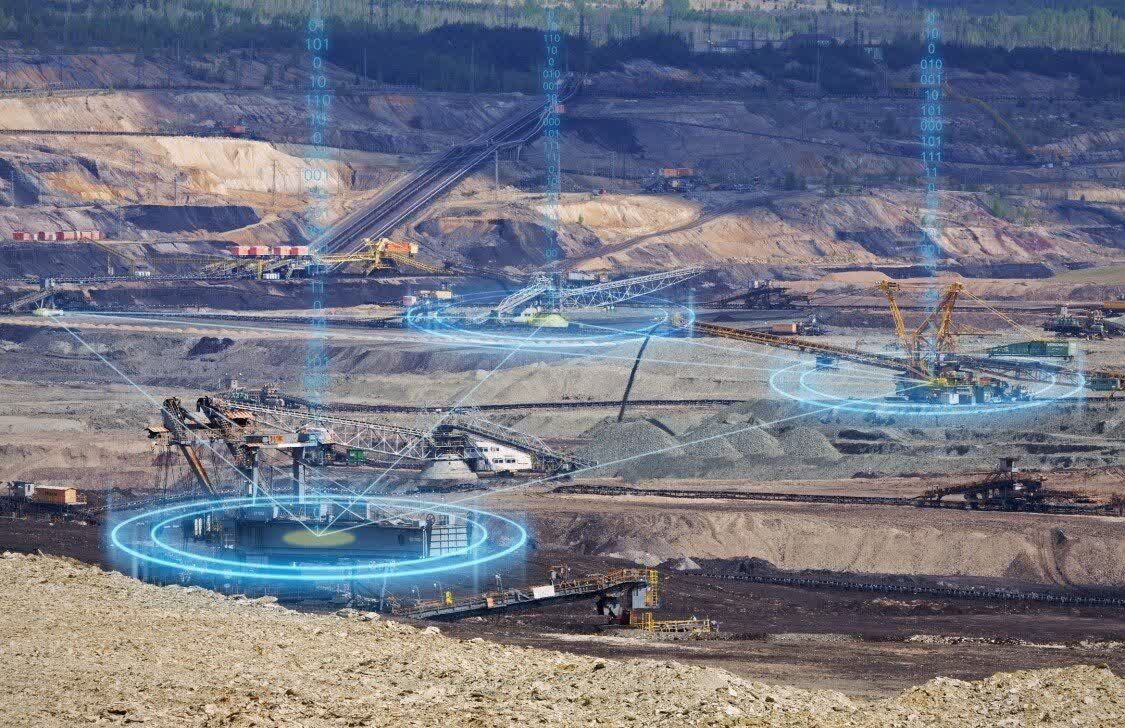smart mining; A transformation in the productivity and safety of mines

In recent years, the mining industry, especially in developing countries, has faced many challenges. Fluctuations in mineral prices, increasing operating costs and the need to improve safety and the environment are among these challenges. In this regard, smart mining is rapidly developing and expanding as a new solution to increase productivity and reduce costs. This approach, using advanced technologies and data mining, revolutionizes the way of extracting and managing mineral resources.
Definition of smart mining Smart mining refers to the application of new technologies, such as Internet of Things (IoT), data mining, artificial intelligence and robotics in mining processes. The main goal of this approach is to optimize mining operations, reduce costs and improve employee safety. By using these technologies, mining companies can make better decisions and thus increase their productivity.
How smart mining works Data collection: In smart mining, data on mine conditions, ore quality, equipment, and worker activities are continuously collected using smart sensors and devices. These data are instantly transferred to central systems.
Data analysis: Using advanced data mining and artificial intelligence algorithms, the collected data is analyzed. These analyzes can include identifying efficient patterns in extraction processes, predicting equipment failure, and assessing environmental risks.
Smart decision-making: based on the results of data analysis, smart decisions are made. For example, if danger signs are detected, the system can send alerts to stop operations or change the mining method.
Resource management: Smart mining allows companies to manage mineral resources more optimally. By carefully analyzing the data, it is possible to formulate better strategies for extracting and selling minerals.
The effect of smart mining on productivity Increased operational efficiency: By using smart technologies, mining operations are optimized and time and costs related to various processes are reduced. For example, by anticipating equipment breakdowns, unexpected shutdowns and additional repair costs can be avoided.
Cost reduction: The use of intelligent systems in mining reduces general and operational costs. By optimizing extraction processes and reducing resource wastage, companies can achieve greater profitability.
Improved safety: One of the most important benefits of smart mining is increasing employee safety. By analyzing data about working conditions and identifying potential hazards, measures can be taken to protect workers and help minimize accidents.
Environmental sustainability: Smart mining allows companies to help improve the environment by closely monitoring the environmental impacts of mining operations. This is especially important in the field of pollution control and mineral waste management.
Smart mining is not only considered as a technological evolution in the mining industry, but also as a key tool in order to increase productivity and reduce costs and occupational accidents. Considering the current challenges in this industry, implementing these technologies quickly can bring a brighter and more sustainable future for mines.
Finally, in order to advance development and productivity goals, it is necessary to make more investments in the field of new technologies and intelligentization of mines.
source:madannews
Wednesday ۱۶th of October ۲۰۲۴ 218
More news on the subject










